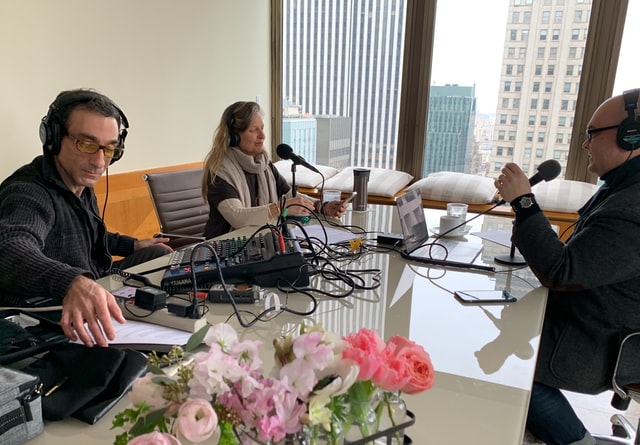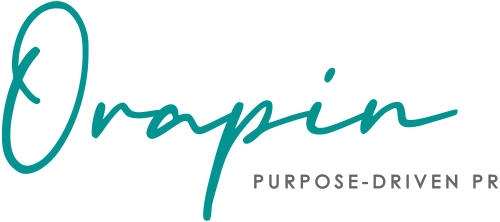
Welcome to the age of the podcast! As PR professionals, we LOVE podcasts. In terms of exposure, quality, and depth, podcasts rank as one of our top choices to garner attention for your cause and expertise.
Why? Each specialty podcast has a select audience looking for in-depth content on a particular topic or subject matter, meaning they are already interested in your area of expertise or the problem you are working to solve. Podcasts have very captive audiences as most podcast listeners are tuned in while driving or walking the dog, giving the pod their full attention while doing menial tasks. They are ready to hear what you have to say!
As a media medium, podcasts are on an exponential growth trend and will likely surpass blogging in terms of popularity and proliferation. According to a March 2021 study in TechCrunch, “there will be 117.8 million people in the U.S. who listen to podcasts on a monthly basis in 2021, a 10.1% year-over-year increase.” 🤯
Further, ConvinceandConvert.com shares that 78% of Americans are now familiar with podcasts and 41% of Americans now listen to at least one podcast each month, if not several each week. The data speaks for itself, podcasts are where you need to be.
So, how do you get booked? Read on to find out.

% of Americans who have ever listened to a podcast: 2018-2021 Credit: Convince&Convert
Finding podcasts that speak to your cause and your audience
The first task is finding podcasts that are relevant to your audience and provide a good platform to share your expertise. If you are a nonprofit organization that provides educational resources to underserved communities, then you should look for podcasts that speak to each and all of your different stakeholders including constituents (parents, community leaders/organizers), your partners (teachers, libraries, educational institutions), and your donor audiences.
There are certainly a plethora of parenting podcasts, education-based podcasts, and philanthropy podcasts, each speaking to the aforementioned audiences. Each category will likely have many options from locally-focused pods to nationally syndicated shows. The same approach applies to a behavioral health services organization or a professional services company. Think about the audiences that you are targeting already via paid advertising and other communications channels, and think about what kind of podcasts these people might be listening to.
The internet is chock-full of “Top Ten Podcasts for XXX” lists for just about every topic under the sun. These curated lists provide a great starting point for researching and building out your targets. Once you start finding appropriate podcasts, begin listening to recent episodes of each to determine fit for your audiences. Just like any other PR strategy, podcast pitching should be highly targeted and each podcast should be well-researched to determine fit.
Pitching for success
Just like any other media pitching, podcast pitching must be tailored to the host and podcast content. Going back to our prior example, you wouldn’t send the same pitch to the parenting podcast as you send to the philanthropy podcast. Their audiences will differ and so should the content you are pitching. Make sure you listen to several episodes to get a good sense of the tone and content for each podcast and host. Ask yourself what new or different perspective you can add to the conversation surrounding their area of focus. What is your expertise or unique point of view that their audience needs to hear? Then pitch accordingly.
When you pitch, be sure to include the following key elements:
- A brief bio about yourself or the person they will be interviewing
- The unique point of view that you/your expert can share and why it is relevant to the audience
- Links to other podcast interviews that you’ve done or byline articles that you’ve composed so they can get a sense of your voice
- A few potential talking points, story ideas, or focus areas that you could discuss during the interview
Guest tips and prep
The key to a great podcast interview, and getting invited back, is preparation. As we’ve mentioned before, it is absolutely critical to listen to at least two full episodes of the podcast prior to your interview. Being prepared will ensure the interview goes smoothly and you aren’t stuck with too many “ummm, let me think” moments. Before your interview, review these key tips:
- Prep your space. Make sure you have a good mic, and quiet room, and an appropriate background if the interview is being videotaped. After our collective past year on Zoom, most people have their audio and video recording space figured out, but make sure to clear your desk of clutter and noise before your interview. If podcasting becomes a regular occurrence for you, check out this checklist from Forbes to really dial in your sound.
- Tell your story. Frequently hosts will include a consistent element, such as a specific question they ask every guest or a request for an anecdotal story or a “time when you…” Determine if any of these key elements exist in the show and prepare your story ahead of time. Make sure you have other key talking points outlined and ready to insert into the conversation where appropriate.
- Research the audience. Really get to know the audience. Check out comments and reviews of the show to get a good sense of exactly who is listening, or even ask the host for an overview of their audience profile. Tailoring your responses to meet the audience’s interests will result in more engagement for your episode and a higher likelihood of getting invited back.
- Be yourself! Use a conversational tone. Think of the podcast as a chat over coffee as opposed to a formal interview. Use the host’s name, share stories, be engaging and personable, and most importantly, be yourself!
Finally, once the episode airs, make sure to thank the host for taking the time to chat with you. Then be sure to share the podcast on your social media and through other owned content channels such as your newsletter and website to help build your credibility among your target audiences. Promoting your episode further helps to build your relationship with the podcast host and serves as a nice gesture and “thank you” to the host for having you on the show.
Photo by Gregory Cole on Unsplash
Diana Crawford is a seasoned public relations consultant with more than 15 years of agency, consulting, and in-house experience. She joined Orapin in 2013 and manages account services and client communications strategy development. She has worked across a variety of industries and has expertise with professional services, food/alcohol, health and wellness, lifestyle, sports, education, tech, and non-profit organizations.
